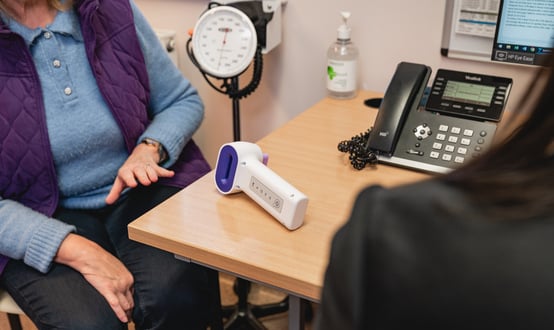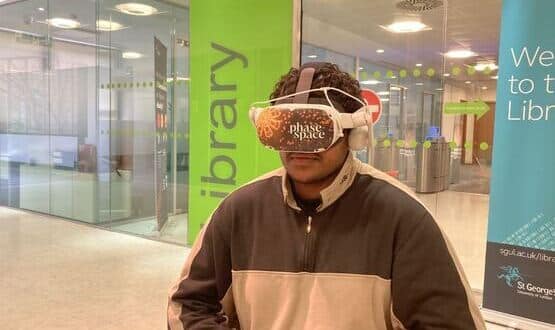NIHR awards £4m to development of virtual reality treatments from NHS

The National Institute of Health Research (NIHR) has awarded £4 million to the development of virtual reality (VR) treatments from the NHS.
The project brings together NHS trusts, universities, a mental health charity, the Royal College of Art, and a University of Oxford tech start-up.
There are three stages to the multi-million pound project: a design phase to ensure the VR treatment is simple to use, engaging, and right for patient needs; a large multi-centre clinical trial in NHS trusts across the country, to demonstrate the benefits of the VR treatment and finally the creation of a roadmap to roll out the treatment across the NHS.
Leading the project is Professor Daniel Freeman, from Oxford University’s psychiatry department.
“Our project will see one of the most exciting and powerful new technologies implemented in the NHS for the first time” he said.
The therapy would be delivered through a virtual reality headset, and involves a virtual coach taking patients through computer-generated simulations of troubling situations.
The coach guides the patient through these scenarios, helping them develop techniques to overcome their difficulties. “Patients often find it easier to do this work in the virtual world – and they enjoy using our VR applications – but the beauty is that the benefits transfer to the real world,” said Freeman.
“Our new treatment is automated – the virtual coach leads the therapy – and it uses inexpensive VR kit, so it has the potential for widespread use in the NHS. We’re inspired by the opportunity VR provides to increase dramatically the number of people who can access the most effective psychological therapies.”
[themify_box icon=”info” color=”gray”]
The full list of partners in the project are:
- University of Oxford
- NIHR MindTech MedTech Co-operative
- The McPin Foundation
- The Royal College of Art
- Nowican
- Oxford University Innovation
- Oxford Health NHS Foundation Trust
- Manchester University
- Newcastle University
- University of Barcelona
- Nottingham University
- Northumberland Tyne and Wear NHS Foundation Trust
- Greater Manchester Mental Health NHS Foundation Trust
- Nottinghamshire Healthcare NHS Foundation Trust
- Avon and Wiltshire NHS Foundation Trust.
[/themify_box]
While still nascent technologies, virtual and augmented reality (AR) have accumulated a fair deal of interest from the medical field and have seen some, albeit limited, field use.
Imperial College Healthcare NHS Trust has been using the Microsoft HoloLens headset to “look inside” patients before they operate on them, in an effort to make procedures safer.
Other proposed applications for VR and AR range from education and training to tools for rehabilitation and pain management, as is the case at Alder Hey Children’s NHS Foundation Trust.




